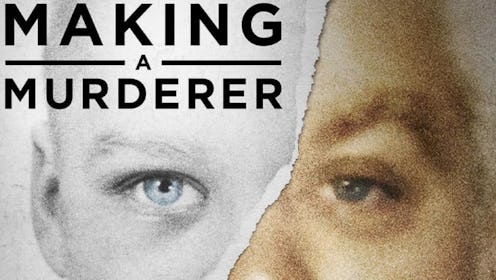
Shakira taught the world that her hips cannot possibly ever lie — but she never said anything about the eyes. According to Manitowoc County Board Chairman Jim Brey, Steven Avery's eyes revealed he was guilty. According to the Herald Times Reporter, Brey wrote in an email to the sheriff's detectives: "I will never forget the look in Steven Avery’s eyes when he was being brought into the courthouse ... I know a person cannot be convicted based on that, but I made up my mind that day. Avery was guilty."
For Brey, facial expressions are the new forensic evidence, it seems. The moment the politician looked into the defendant's eyes, there was no going back. Like concrete facts isolated in a lab, a simple acknowledgment of the eyes was all the information he needed to reach a verdict. I, for one, am dying to know what "the look in Steven Avery's eyes" actually looked like. Unfortunately, Brey refrains from disclosing a more in-depth description of Avery's baby blues.
So just how good are eyes at telling lies? It's safe to say they don't reveal anything substantial when judged alone. For generations, people bought into the tall tale that right-handed people look up and to the right when they are crafting a story. The theory was so prevalent that researchers from legitimate universities, such as the University of Hertfordshire, tested it in an experiment. Needless to say, the theory, which is even still taught in some training courses, was debunked.
In 2007, Avery was found guilty of the 2005 murder of photographer Teresa Halbach and sentenced to life in prison without parole. Since the premiere of Netflix's Making a Murderer, which documents the case, the sheriff's department's involvement in the case has become a subject of scrutiny. The defense has implied that the Manitowoc County Sheriff's Department planted evidence to frame Avery; the Department has denied all such allegations and insists it acted lawfully.
Filmmakers Laura Ricciardi and Moira Demos insist that the series is not about whether Avery is actually guilty of the crimes of which he's been accused. Instead, they say it's about becoming aware of the flaws in the justice system. Ricciardi explained the broader implications during an interview with Steven Colbert on The Late Show:
We feel like there are no winners here. What we hope to achieve by sharing this story with as many people as we can is really to try and engage Americans and for people to feel a sense of responsibility and to try and understand their own agency here.
This long after the conviction, allegedly lying eyes shouldn't really be a concern.